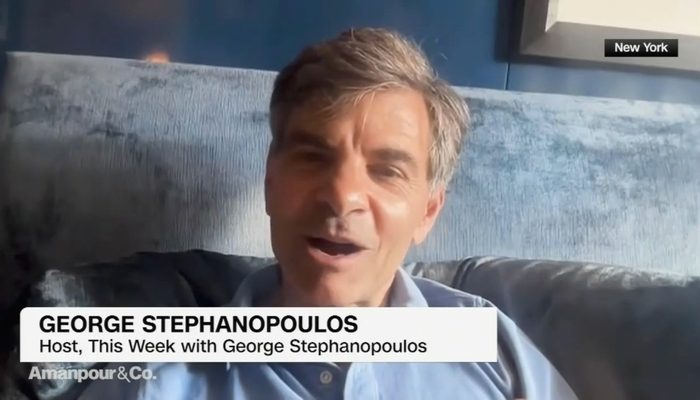As the week began, we looked into a PBS and CNN International show called Amanpour & Co., where journalist Walter Isaacson interviewed George Stephanopoulos. A prominent figure in both politics and media, Stephanopoulos served in the heart of the Clinton administration before hosting ABC’s Good Morning America and This Week. He was there to talk about his new insight-packed book, The Situation Room.
A funny bit of promotion for his book was its gratuitous mention on ABC’s Jeopardy! Masters, where Stephanopoulos narrated a segment on presidential crises. He began by commending Barack Obama for his definitive decision to neutralize 9/11 mastermind, Osama bin Laden. However, predictably, he raised his concerns about a potential Trump re-election, sharing his qualms via their tax-supported platforms.
A peculiar claim from Stephanopoulos during the discussion was that Trump was apprehensive about using the Situation Room, mirroring Nixon’s sentiments. Stephanopoulos further said that Trump was suspicious of the Situation Room personnel and remained largely distant from it. He added that these individuals, whom Trump tagged as the “Deep State,” were even sent news program banners by the president, an act that baffled many and drew harsh criticism from his top-ranked officials – all of whom, Stephanopoulos claimed, questioned Trump’s competence and character.
Isaacson, interested in the idea of the “unsung heroes of the Situation Room,” poked his guest further for elaboration on the patriotism of this permanent bureaucracy. Stephanopoulos obliged, lauding the professionalism, duty-bound, and apolitical ethos of these individuals amidst a general dismissal of the so-called ‘deep state’.
In the conversation, Stephanopoulos showed apprehension at what he deemed the “shameful” and “unconstitutional” normalization of rejecting election results. He insisted journalists should never lose focus on this dangerous issue, and it shouldn’t just be another topic on the table, like tax policy or environmental regulations. Stephanopoulos, alarmed, argued the fundamental nature of the peaceful transfer of power for our democracy is at stake.
In conclusion, it seems the perspective offered by Stephanopoulos on Trump’s management, the responsibilities of the bureaucracy and the weight of democratic traditions, is reflective of his personal beliefs and should be considered as such. The discussion prompted by Issacson’s inquiries put the book, The Situation Room, and Stephanopoulos’ analysis of issues, at the forefront of political discourse.



